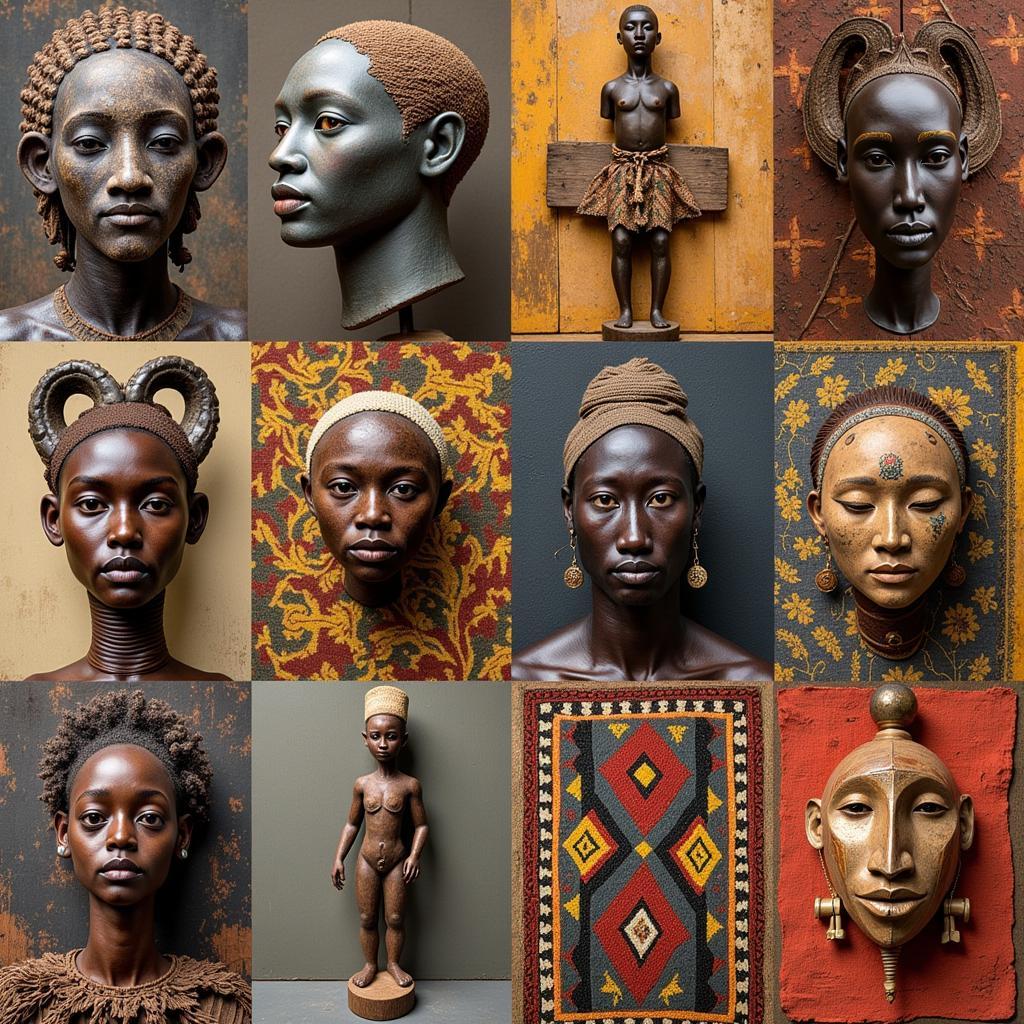Exploring the Rich Tapestry of African Diaspora Studies
African Diaspora Studies is a vibrant and interdisciplinary field that delves into the complex histories, cultures, and experiences of people of African descent dispersed across the globe. This field examines the multifaceted impact of forced migration, slavery, colonialism, and ongoing struggles for social justice, offering crucial insights into the shaping of identities, communities, and global power dynamics. From the transatlantic slave trade to contemporary migration patterns, African diaspora studies illuminates the enduring legacy of Africa and its people worldwide. After the initial hardships, vibrant communities emerged, contributing significantly to the cultural landscape of their adopted homes.
Scholars in African diaspora studies explore a wide range of topics, including cultural production, political activism, social movements, and the formation of transnational identities. They analyze the ways in which African traditions have been adapted, transformed, and reinterpreted in different contexts, highlighting the resilience and creativity of diaspora communities. For example, the field often examines the role of music, literature, and art in expressing resistance, preserving cultural memory, and fostering connections across geographical boundaries. African diaspora studies challenges conventional historical narratives and offers a more nuanced understanding of global history.
Unpacking the Core Concepts of African Diaspora Studies
This field isn’t just about historical analysis; it’s also deeply concerned with contemporary issues facing diaspora communities. These issues include racism, discrimination, economic inequality, and the ongoing struggle for human rights. African diaspora studies provides a framework for understanding the interconnectedness of these challenges and for developing strategies for social change. It also explores the ways in which diaspora communities maintain ties to their ancestral homelands and contribute to development efforts in Africa.
Further exploration into African diaspora studies often involves looking at specific regions and the unique experiences of African descendants within those areas. For instance, research on African girls on Mumbai sheds light on the lives and challenges of this specific community within the broader Indian diaspora. Similar studies focus on the Caribbean, Latin America, Europe, and other regions, revealing the diverse expressions of African identity and culture across the globe.
Key Themes in African Diaspora Studies: Identity, Culture, and Power
One central question explored in African diaspora studies is how identity is constructed and negotiated within diaspora communities. What does it mean to be “African” in a globalized world? How do factors such as race, ethnicity, nationality, and gender intersect to shape individual and collective identities? These are just some of the complex questions addressed in this field. Examining cultural production is crucial to understanding how diaspora communities express their identities, preserve their heritage, and negotiate their place in the world.
The exploration of power dynamics is another critical aspect of African diaspora studies. This field examines the historical and contemporary manifestations of power, including colonialism, racism, and globalization, and how these forces have shaped the experiences of African diaspora communities. It also analyzes the ways in which diaspora communities have resisted oppression and mobilized for social justice. Understanding these power dynamics is essential for addressing ongoing inequalities and building a more equitable future.
Methodologies and Approaches in African Diaspora Studies
Researchers in this field employ a variety of methodologies, including historical analysis, ethnographic research, literary criticism, and cultural studies. They often draw on interdisciplinary approaches, integrating insights from different fields to gain a more comprehensive understanding of the African diaspora experience. Studying the African diaspora provides a rich opportunity to explore the complexities of human experience and the interconnectedness of global history.
What are some resources for learning more about African Diaspora Studies?
Many universities offer courses and degree programs in African diaspora studies, providing students with a deeper understanding of the field. Numerous books, journals, and online resources are also available for those interested in learning more. Engaging with these resources can broaden your perspective and deepen your appreciation for the richness and diversity of African cultures worldwide. Scholarships, such as African American study abroad scholarships, can offer further opportunities for in-depth study and exploration.
African American study abroad scholarships
African history dissertation topics
Conclusion: The Continuing Journey of African Diaspora Studies
African diaspora studies offers a vital lens through which to understand the complexities of global history, culture, and identity. By examining the experiences of people of African descent across the globe, this field illuminates the enduring legacy of Africa and its profound impact on the world. African diaspora studies continues to evolve, constantly incorporating new perspectives and addressing emerging challenges. As we move forward, this field will undoubtedly play a crucial role in shaping our understanding of the past, present, and future.
FAQ
- What is the primary focus of African diaspora studies?
- How does African diaspora studies contribute to our understanding of history?
- What are some key themes explored in this field?
- What methodologies are commonly used in African diaspora studies?
- How can I learn more about African diaspora studies?
- What is the significance of studying the African diaspora?
- How does African diaspora studies intersect with other academic disciplines?
Common Scenarios and Questions:
-
Scenario: A student is researching the impact of colonialism on African cultures.
-
Question: How can African diaspora studies help me understand the long-term effects of colonialism?
-
Scenario: An individual is interested in exploring their African heritage.
-
Question: Where can I find resources and communities related to my specific African ancestry?
Further Exploration:
Consider exploring related topics such as the transatlantic slave trade, African independence movements, and contemporary African politics. Look for articles and documentaries that delve into specific aspects of the African diaspora, such as the experiences of Afro-Latinx communities or the role of music in preserving cultural identity.
Contact Us
When you need assistance, please contact us: Phone: +255768904061, Email: kaka.mag@gmail.com Or visit us at: Mbarali DC Mawindi, Kangaga, Tanzania. We have a 24/7 customer service team.


